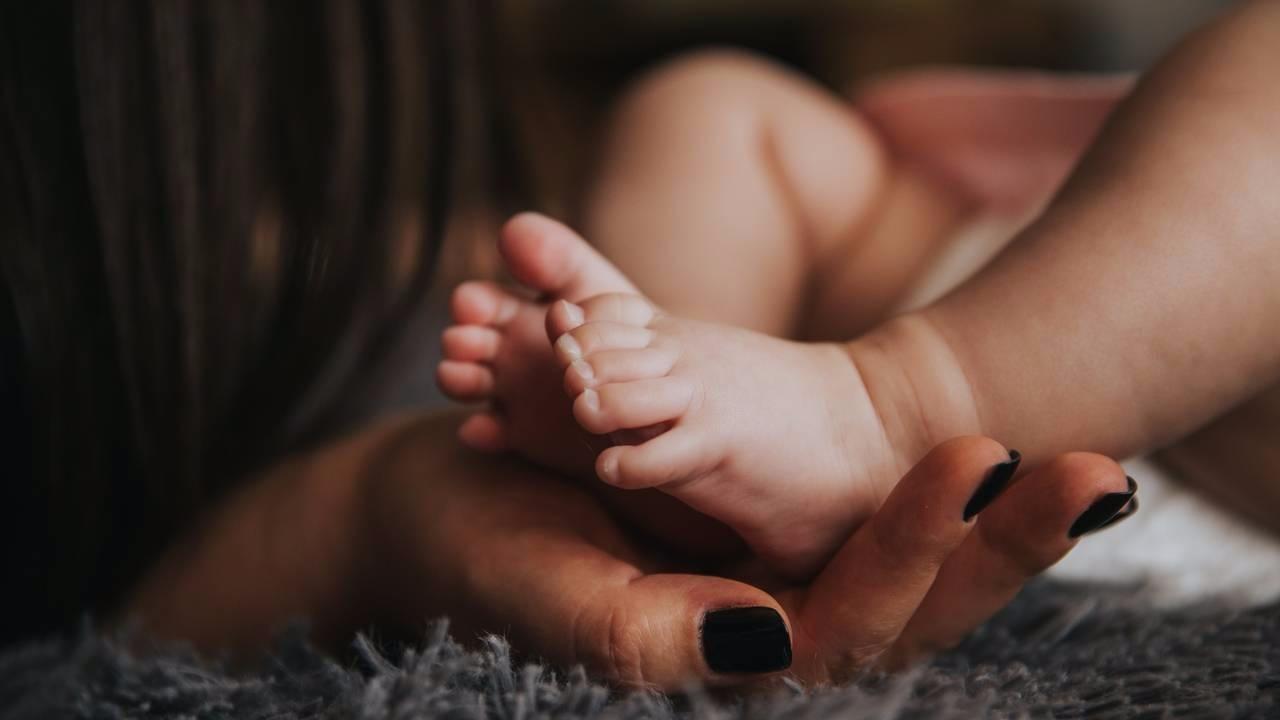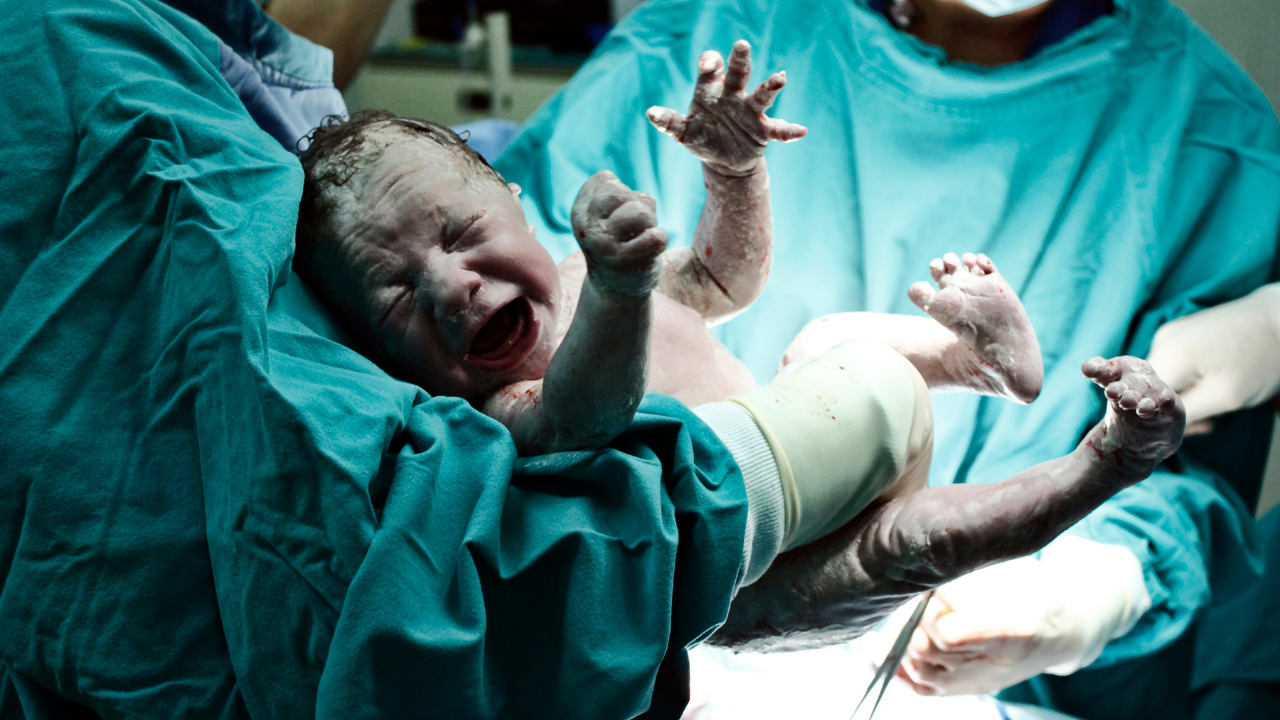Top 5 Things I Need to Know about my Newborn
Feb 21, 2020
Hey all you soon to be new mommas and poppas....little babies can be scary, so many things you have no idea you need to know until you are in the middle of it!! So, we compiled a list of the top 5 things you need to know about your newborn, and some tips on Newborn Care.
1) Babies are born Blue!
Babies have quite the journey from their cozy home in your uterus to life in the big bad world! They go from getting everything they need through the umbilical cord to needing to breathe, eat and manage all their needs on their own (with lots of support from you of course!).
This transition goes surprisingly well for most babies, but until they get those lungs working they start off a little blue! They should start to pink up within the first minute of life, but sometimes they need a little extra support from us to get things working properly.
Most babies have it all sorted by 10 minutes of life, so don't be too worried if they need a little extra support to get everything working well when they first come out! We will get them back to you as soon as they are stable to do so, their skin-to-skin time with you is so important!!

2) Your baby will lose weight...and then regain it!
It is normal for your baby to lose up to 10% of their birth weight in the first few days of life. We generally expect them to gain back this lost weight, and be back at their birth weight, by 10-14 days of age.
3) Your baby will be jaundiced, but you may not recognize it.
ALL babies get jaundiced, it just depends on how jaundice they get as to whether we need to treat them. Jaundice is that yellow tinge to the skin and eyes that babies get. It is caused by the breakdown products of the red blood cells of babies, as they are transitioning from their baby hemoglobin, or red blood cells, to their adult hemoglobin.
This product is then broken down in the liver and transferred out of the body in the baby's pees and poops. There are a number of reasons why this may not happen as efficiently as it could, which would then cause higher bilirubin levels and more jaundice, that might need to be treated.
Most babies are able to manage this process all by themselves. There are some factors that increase the risk of babies getting to a level of jaundice that we need to treat these are....
- Gestational Age: The younger a baby is when they are born, the less mature their liver is and the harder time it has processing all the breakdown products, and so the bilirubin can rise in their blood, leading to a need to treat the baby.
- Ethnicity: Babies of East Asian Ethnicity (China, Japan, Korea, Taiwan etc.) are at a higher risk of jaundice requiring treatment. This is due to a lower level of the enzyme which helps to breakdown bilirubin in the baby's blood. Their bilirubin levels in the blood are often higher, peak later and take longer to resolve.
- Blood Type: If the baby has a different blood type than the mom, and the mom has created antibodies against this blood type, then the baby gets some of these immune cells from the mom. These immune cells break down the baby's red blood cells more quickly. This occurs more often in moms who have RH - blood type and give birth to a baby with RH + blood type or moms who have O type blood and a baby who is blood type A, B or AB.
- Genetic Causes: There are certain genetic causes that can increase a baby's risk of getting jaundice, which creates a different shape of red blood cell, or differences in enzymes that help to break down bilirubin in baby's blood causing them to not work as well.
In Victoria we monitor Jaundice levels closely in the hospital, and if needed after discharge. Mild jaundice generally is treated by keeping your baby hydrated, as broken down bilirubin is excreted through pee and poo!
The other way we treat jaundice is through ultraviolet light which helps to breakdown the bilirubin right under the skin.
This is done when bilirubin levels are too high to rely on hydration alone. This is done in the hospital here in Victoria and looks like a little tanning booth for your baby. Sometimes we can use a blanket that wraps around your baby to expose them to UV light. Occasionally we need to do more invasive treatment if your baby's bilirubin levels are extremely high, but luckily this is rare.
4) Babies need to eat....but not too much right away!
New parents are always concerned that their babies are not getting enough. We have to remember that newborn babies are just wee...and so are their bellies! Mom's produce colostrum, which is a nutritionally dense form of early breast milk, for the first couple of days and this is generally all that baby needs.
Baby feeds often during those first couple of days, only taking in a little bit of colostrum, which helps give a continuous stream of nutrition, and allows the stomach to slowly expand while mom's milk is coming in. That frequent feeding, and skin to skin time, also helps to prime mom's breasts for milk production over the next weeks to months. Check out our blog post on Tips for Breastfeeding!
The ways to tell if your baby is getting enough is by weighing your baby, which we do in the hospital and frequently at office visits over the first couple of weeks of baby's life, and monitor wet diapers. A good general rule of thumb is that your baby should be peeing as many times as it is days old for those first 5-7 days!
#5) Your baby will sleep soundly in those first few weeks...during the daytime anyways!
Babies tend to sleep A LOT in that first month of life, but they are a bit mixed up in the usual ways of sleeping!!! They are used to sleeping during the day when you are active and they are rocked to sleep in your uterus by your day-to-day movements and wake up in the evening when you are still and trying to go to sleep!

This continues over the next few weeks as they adjust to life on the outside! Usually, around 6 weeks of age babies will start to sleep more at night and less during the day. So nap when you can, and make sure you and your partner tag team at night as much as is possible!
Try to encourage sleep at night by not reacting every time your baby makes a peep. The nature of sleep is that babies and adults come to the edge of waking and then sometimes will go back into a deeper sleep unless they are disturbed by a well-meaning parent! So if your baby is not crying, give them a minute or two to see if they will settle. And some babies are just noisy sleepers...don't worry...if they are hungry they will call for you.
But...during the first few weeks, until you know your baby is gaining well, you should be feeding them at least every 3 hours during the day and 4 hours from start to start at night, in reality, it will probably be more often than this!
Check out our podcast that goes into more details!
Want to learn more about Jaundice? Here is a great resource!
Disclaimer:
She Found Health is meant for general medical information only. The content of this blog is not intended to be a substitute for professional medical advice, diagnosis, or treatment. This does not apply to every situation. If you have questions, or if you have received different advice please contact your health care provider. Always seek the advice of your physician or another qualified health provider with any questions you may have regarding a medical condition.
The views expressed by She Found Health and our guests are not representative of any institution with which we are affiliated.
Don't miss a word!
New topics, stories, and information delivered to your inbox weekly.
Sign-up to receive our podcast and blog posts delivered to you directly via email!
We hate SPAM. We will never sell your information, for any reason.


